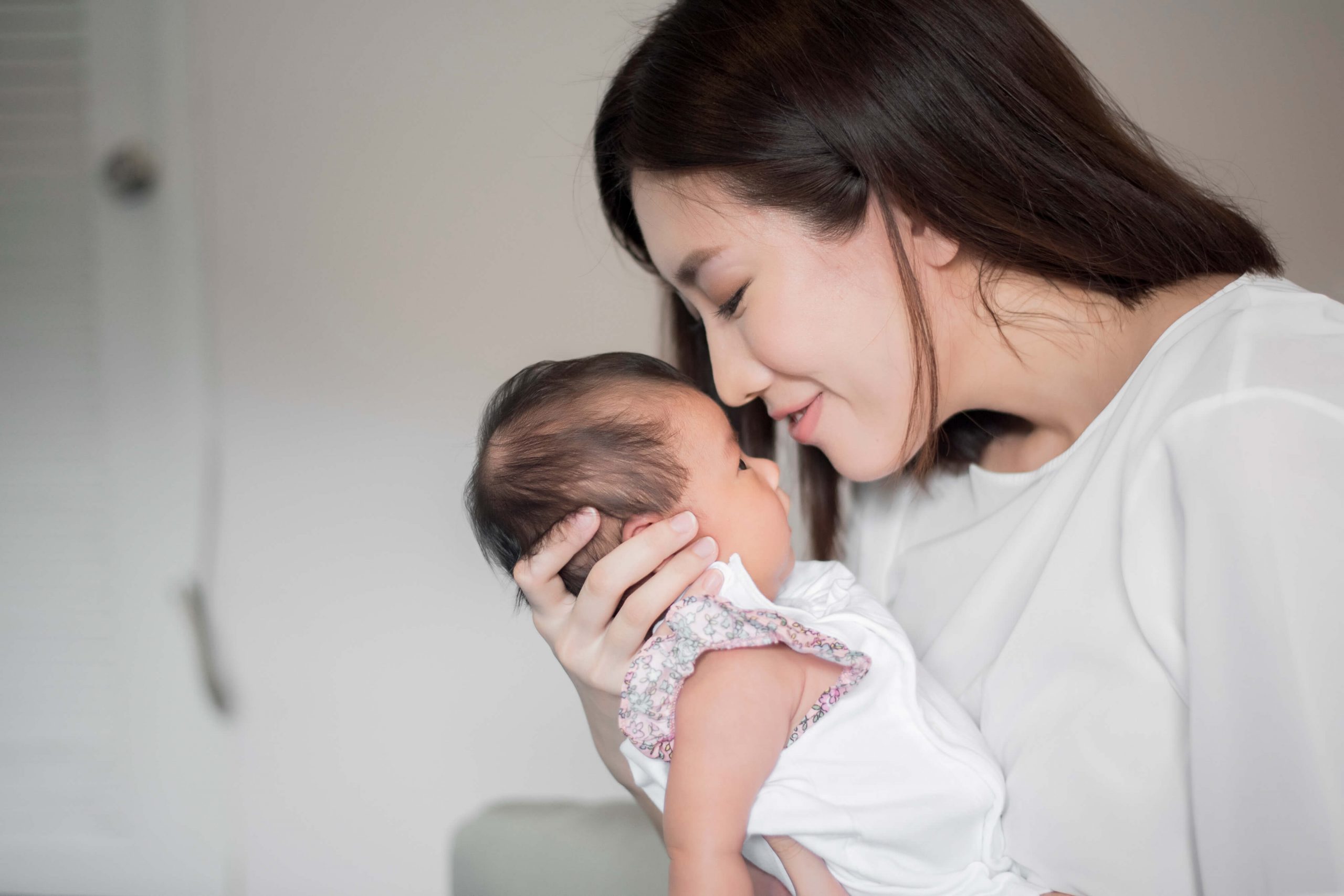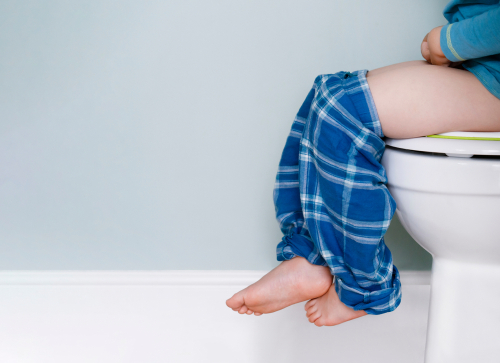Children & Parenting
Snoring & Obstructive Sleep Apnoea In Children: When Should You Be Worried

My Child Snores, Should I Be Worried?
Hearing someone snore in sleep may elicit some giggles (or perhaps some irritation, if you are the bed partner), but what happens if it is your child who snores? Should you be worried? What should you do as a parent?
It is relatively common for children to have the occasional snore, but loud and regular snoring is often abnormal. It can be a sign of a respiratory infection, a blocked nose or allergies; other times it may be a symptom of a medical condition called ‘obstructive sleep apnea’, which can lead to other major health conditions.
Read on for more information ….
What Causes Snoring In Children?
Snoring is caused when there is narrowing of the upper airway and vibration of the supporting structures. Here are a few reasons how this ‘narrowing’ can arise in your child.
Enlarged Tonsils & Adenoids
In children, big tonsils and adenoids are a common cause of ‘blockage’ of the upper airway resulting in snoring. The tonsils are lymphoid tissue or glands located at the back of the throat, while adenoids are located at the back of the nasal passage. They usually help trap harmful bacteria, and can become big and swollen especially in children between the ages of 2 to 8 years old. These enlarged tissues can block the air passage and cause snoring at night, especially when the supporting muscles relax in sleep, causing further narrowing of the air passage.
Respiratory Infections & Allergies
Childhood illnesses like ‘the common cold’ can cause mucus to form in your child’s nose, causing blockage of his /her breathing. Snoring can occur during these periods, but are usually temporary and goes away once your child recovers from the illness. Throat infections like tonsillitis caused by viruses or bacteria can cause snoring when the tonsils at the back of the throat swell up.
Nasal allergies like a sensitive nose (‘rhinitis’) can cause the lining inside your child’s nose to be swollen and inflammed, and mucus that is produced frequently can also cause more persistent blockage in your child’s nose. Besides snoring, other common symptoms are a frequent itchy nose, rubbing, mouth breathing and sneezing.
Deviated Septum
A deviated septum is when the ‘middle wall of the nose’ is shifted away from the midline, resulting in one nasal passage being wider than the other. You child may have a perpetual ‘blocked nose’ as this can reduce the airflow through the nose, leading to snoring.
He/she may complain of difficulty breathing through the nose, or have symptoms that are usually worse on one side, and in some cases, can result in repeated sinus infections.
Obstructive Sleep Apnoea (OSA)
Obstructive sleep apnoea is a relatively common medical condition where your child’s upper airways are partially or completely blocked while he/she is sleeping. The blockage of the breathing results in dips in your child’s oxygen level in sleep, and this may be accompanied by frequent disruption to the brain (arousals and sleep fragmentation).
Snoring is one of the most common symptom of this condition. Other symptoms include pauses in the breathing, restless sleep, gasping or choking, and bedwetting. Daytime symptoms include: tiredness and sleepiness in the day, behavioural issues, poor attention span or focussing, and poor weight gain.
OSA can occur in adults too, but there are differences between paediatric and adult obstructive sleep apnea. While daytime sleepiness is common in adults with OSA, children are more likely to have behavioural problems like hyperactivity. The underlying cause in adults is often obesity, while in children the most common underlying condition is enlargement of the adenoids and tonsils.
Overweight and obese children have a higher risk of OSA, due to abnormal respiratory mechanics and airway narrowing from fatty deposition in their tongues and upper air passage.
Children with other rarer medical conditions like achondroplasia and Trisomy 21 (Down syndrome) are also at increased risk of OSA.
It is important to detect OSA early to allow treatment to begin and to prevent complications that can affect your child’s growth, cognitive development and behaviour. There are also other health problems that can come with OSA such as heart and lung complications, which is why it is important to see a doctor if you suspect that your child may have OSA.
Obstructive Sleep Apnoea In Children (What To Look Out For)
Daytime Symptoms
- It is difficult to wake up your child in the mornings even if he/she has had adequate hours of sleep for his/her age. Besides getting a good ‘quantity’ of sleep, good ‘quality’ sleep is equally important.
- Your child is frequently tired and sleepy during the day, often ‘zoning out’, is easily irritated, aggressive or cranky. This may mean he/she is not getting a good night’s sleep.
- Your child is having difficulties learning, paying attention or behaving well in school.
- Your child breathes primarily through his/her mouth.
- Your child is not growing well and is ‘small for his/her age’.
Night-Time Symptoms
- Your child snores regularly, at least 3 nights a week.
- You notice that your child snorts, gasps, or stops breathing during sleep.
- Your child uses more effort to breathe at night or is frequently waking up due to breathing difficulties.
- Your child sweats or moves around frequently in the bed during sleep (restless sleep).
- You find your child sleeping in awkward or abnormal positions frequently, especially with his/her head tilted backward, mouth opened, or chin and neck extended.
- Your child frequently wets the bed even though he/she had stopped wetting the bed for a long time or is older than 7 years old.
What Can Be Done For Children With Snoring?
Your child’s paediatrician will have to take a history from you and perform a full physical examination on your child to check for causes of his/her snoring. He may then refer your child to a sleep specialist for a sleep study (polysomnogram). This is currently the best way to check for OSA in children.
A sleep study (polysomnogram) is an overnight test that records your child’s brain waves, breathing pattern, oxygen level and chest movements as he/she sleeps. This will be usually be done in a hospital setting where you can accompany your child for the night. A sleep technician will be around with you to help set up the equipment and perform the recording. The sleep specialist will then analyse the data, and confirm if your child has OSA.
Treatment options differ depending on what the cause of snoring is in your child, and if there is OSA.
Nasal Sprays & Oral Medications
Nasal sprays include ingredients like saline (saltwater) or corticosteroids. Oral medications include antihistamines like cetirizine and fexofenadine or leukotriene antagonists like montelukast may be prescribed for your child. These are useful to reduce symptoms of a blocked or sensitive nose (rhinitis) by reducing the swelling, mucus and inflammation.
Allergen Testing & Avoidance
If your child has suspected allergies, like dust mite allergy which is a common trigger in Singapore for allergic rhinitis, a skin prick test or blood test can be done to check for this. Avoidance measures include washing your child’s bedsheets and pillow cases in hot water weekly, and avoiding stuffed or furry toys on the bed.
Surgery
It may be recommended that your child undergoes surgery to remove his/her tonsils and adenoids if they are enlarged and causing obstruction to the airways.
In adults, further surgical procedures to the nose, jaw, palate, or tongue base may be performed as well, but these are less commonly done in children, and are often reserved for a small number of older kids whose OSA do not improve despite tonsils and adenoid removal.
Continuous Positive Airway Pressure (CPAP)
If your child has obstructive sleep apnoea, a device called the Continuous Positive Airway Pressure (CPAP) machine may be recommended as treatment. The machine blows out pressurised air from the environment as a continuous stream (through your child’s nose and/or mouth to keep the airways open. This helps to relieve the blockage of the air passage as your child sleeps.
Weight Loss
In children who are overweight or obese, the importance of weight loss cannot be more emphasized. It is important for children to eat well and exercise regularly to keep their weight in a healthy range. This also helps their breathing and sleeping at night.
Dental Appliances
In a few selected children, specialised appliances may be prescribed by their dentist to help shape their palate (roof of the mouth) and jaw as they grow. These help to widen their breathing passage, such that snoring and OSA improves with time.
Tips/Summary For Parents:
- Do not ignore snoring in your child.
- Besides healthy eating and exercise, good sleep is important for all children to grow up healthy and strong.
- Obstructive sleep apnea (OSA) is a medical condition that can occur in both children and adults, and snoring is the most common symptom.
- Seek medical advice if your child snores, and/or does not sleep well.
WHO WE ARE
About SOG Health Pte. Ltd.
Established in 2011, SOG Health Pte. Ltd. (“SOG”) is a leading healthcare service provider dedicated to delivering holistic health and wellness services to the modern family.
With a long and established track record in Singapore providing Obstetrics and Gynaecology (“O&G”) services such as pre-pregnancy counselling, delivery, pregnancy and post-delivery care, the Group has since further expanded its spectrum of healthcare services to include Paediatrics, Dermatology, and Cancer-related General Surgery (Colorectal, Breast & Thyroid).
The Group’s clinics, under its four operating segments of O&G, Paediatrics, Oncology and Dermatology, are strategically located throughout Singapore to provide easy access to its patients.
- Obstetrics
- Gynaecology
- GynaeOncology
- Breast, Thyroid & General Surgery
- Colorectal, Endoscopy & General Surgery
- Dermatology
- Paediatrics
Consult With A Specialist From SOG
Visit one of our specialists today to learn more about your health!
Recommended Paediatricians
Book An Appointment
Fill up this form and our clinic will get back to you shortly.
For general enquiries, please click here.






